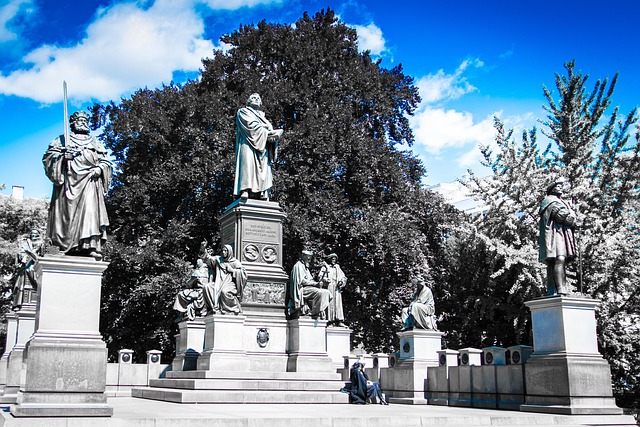
Religious Reformation in Germany Was Started by
Introduction
The Religious Reformation in Germany, a pivotal movement in European history, marked a significant shift in the religious landscape of the continent. This transformation was initiated by various factors, including theological disputes, political dynamics, and social changes. The Reformation fundamentally altered the relationship between the Church and the state, leading to the emergence of Protestantism as a major religious force.
Background of the Reformation
The Reformation began in the early 16th century, primarily as a response to perceived corruption within the Roman Catholic Church. The sale of indulgences, clerical abuses, and the opulence of the Church hierarchy were among the key grievances that fueled discontent among the populace. This environment set the stage for reformers to challenge the established order.
Martin Luther's Role
At the forefront of the Reformation was Martin Luther, a German monk and theologian. In 1517, Luther famously nailed his Ninety-Five Theses to the door of the Castle Church in Wittenberg, criticizing the Church's practices, particularly the sale of indulgences. His actions ignited widespread debate and laid the foundation for the Protestant Reformation.
Theological Foundations
Luther's theological arguments centered on the concepts of justification by faith alone and the authority of Scripture. He asserted that salvation could not be earned through good works or monetary contributions to the Church, but rather through faith in Jesus Christ. This radical departure from Catholic doctrine resonated with many, leading to a growing following.
Political and Social Context
The Reformation did not occur in a vacuum; it was influenced by the political and social context of the time. The Holy Roman Empire, where Luther lived, was characterized by a fragmented political structure, with numerous princes and city-states. Many of these leaders saw the Reformation as an opportunity to assert their independence from the papacy and consolidate their power.
For instance, the Elector of Saxony, Frederick the Wise, provided Luther with protection, allowing him to continue his work without fear of persecution. This support was crucial in the early stages of the Reformation, as it enabled the dissemination of Luther's ideas through pamphlets and translations of the Bible into German.
Expansion of Protestantism
As Luther's ideas spread, other reformers emerged, each contributing to the diversification of Protestant thought. Figures such as John Calvin and Huldrych Zwingli expanded upon Luther's teachings, leading to the establishment of various Protestant denominations. The movement gained traction across Europe, with significant support from the nobility and urban populations.
Impact on Church and Society
The Reformation had profound implications for both the Church and society. It led to the fragmentation of Western Christianity, resulting in the establishment of numerous Protestant churches. The Catholic Church, in response, initiated the Counter-Reformation, seeking to address some of the criticisms raised by reformers while reaffirming its doctrines.
Moreover, the Reformation influenced social and cultural developments. The emphasis on individual interpretation of Scripture encouraged literacy and education, as people sought to read the Bible for themselves. This shift contributed to the rise of a more informed and engaged populace.
Conclusion
The Religious Reformation in Germany, initiated by Martin Luther and supported by a complex interplay of theological, political, and social factors, fundamentally transformed the religious landscape of Europe. Its legacy continues to shape contemporary Christianity and the relationship between religion and society.

















 Sample Analysis in Killing Floor 3
Sample Analysis in Killing Floor 3 
 Health
Health  Fitness
Fitness  Lifestyle
Lifestyle  Tech
Tech  Travel
Travel  Food
Food  Education
Education  Parenting
Parenting  Career & Work
Career & Work  Hobbies
Hobbies  Wellness
Wellness  Beauty
Beauty  Cars
Cars  Art
Art  Science
Science  Culture
Culture  Books
Books  Music
Music  Movies
Movies  Gaming
Gaming  Sports
Sports  Nature
Nature  Home & Garden
Home & Garden  Business & Finance
Business & Finance  Relationships
Relationships  Pets
Pets  Shopping
Shopping  Mindset & Inspiration
Mindset & Inspiration  Environment
Environment  Gadgets
Gadgets  Politics
Politics 